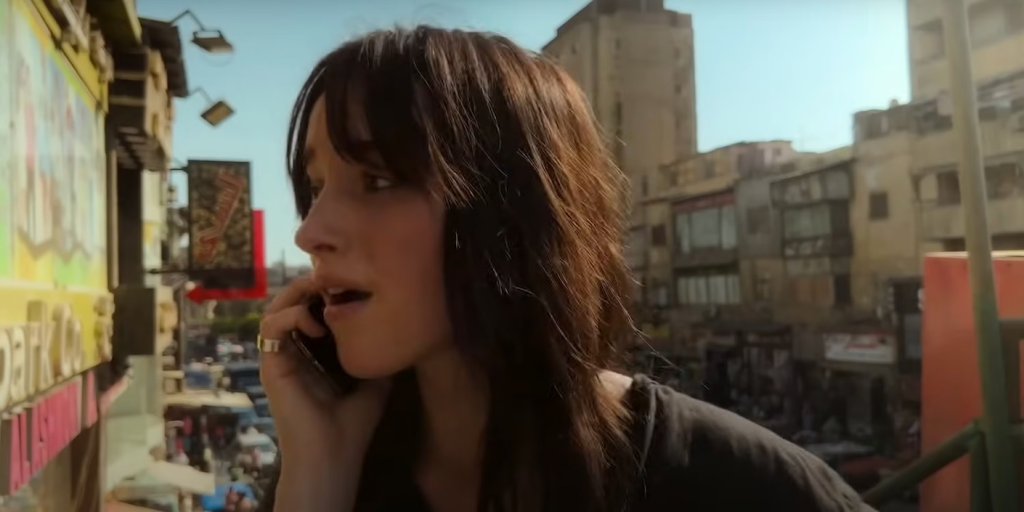
In Inheritance, director Neil Burger invites us into a world where the truth wears a thousand faces, and the past refuses to stay buried. The story begins not with a bang, but with silence—the kind that follows a funeral, where Maya, played with quiet intensity by Phoebe Dynevor, returns home to bury a mother she barely knew and to meet a father she barely remembers. Sam, enigmatic and weathered, reenters her life like a ghost with a passport, offering not comfort, but a job—and a ticket to Cairo.
What starts as a tentative reunion quickly unravels into something far more treacherous. Sam disappears. His name isn’t his. His life isn’t clean. And Maya, propelled by blood ties and the hunger for answers, finds herself in the slipstream of a hidden world. From the chaotic alleys of Delhi to the nocturnal sprawl of Seoul, she moves like a shadow chasing a shadow—tasked with retrieving a cryptic item locked away by a man who never truly let her in.
But Inheritance isn’t just about decoding espionage. It’s about what we inherit beyond money and memory: unfinished wars, secrets we didn’t ask for, and choices we’re forced to make when the script has already been written for us.

From the very first frame, Inheritance positions itself on the margins of mainstream cinema, not in subject matter, but in its approach. Shot entirely on an iPhone, without permits, without extras, and often without formal setups, the film lives in a raw, breathing world. It moves with the uncertain rhythm of actual streets, unfiltered by production polish. What’s most impressive is that the iPhone is never used as a gimmick. There’s no “look what we can do with a phone” moment. It simply is—quietly integrated into the DNA of the film’s visual language.
And that’s where Burger deserves credit, he strips everything down to its core. Only directors confident enough in their vision dare to go small. What results is a film that feels—oddly and beautifully—like one long take. The fluidity of the shooting style does more than guide the story. It anchors the actors. You can see them breathe through each scene, never falling out of character. The naturalistic performances, especially by Phoebe Dynevor, feel like they’re happening as you watch. There’s no reset, no artificiality. Just a camera trying to keep up.
But here’s the paradox: while the form is innovative, the content isn’t. The plot is predictable. The twists are expected. Yet, strangely, that doesn’t matter. You don’t watch Inheritance for the payoff. You stay for the texture—for the feeling of being there. Whether it’s Cairo, Delhi, or Seoul, there’s an unmistakable authenticity to the spaces. Not the exoticized version, but the actual, mundane, everyday truth of them. It becomes a small global adventure, not for where it takes you, but for how you’re taken there. You don’t mind where it ends because the ride is strangely intimate—even when the script falters.

And yes, it does falter. The screenplay never quite justifies the journey. The characters orbit a plot that feels written after the decision to shoot this way was made. You get the sense that the real film, the real experiment, was the shooting method—and the story was molded around it. And the film never escapes a few unavoidable limitations. At times, bystanders clearly look into the lens. You can see the public reacting to a shoot they didn’t sign up for. It pulls you out—not in a ruinous way, but in a way that reminds you this is a film that’s constantly negotiating with its surroundings.
To be clear, Inheritance isn’t a great story. It doesn’t redefine its genre or linger with emotional depth. But it is an experience. One that rewards curiosity more than fandom. One that asks: What if you could shoot a spy film like you’re hiding from the world, not staging it? The answer might not thrill you, but it’ll stay with you.
And for viewers from the cities where it was shot—there’s a special, personal reward. Seeing your streets, your corners, your overlooked spaces captured without artificial light or studio set dressing. Even if you don’t care for spy films, you’ll care for this glimpse of your daily life reframed.
Rating: ★★★★★★☆☆☆☆ (6/10)
